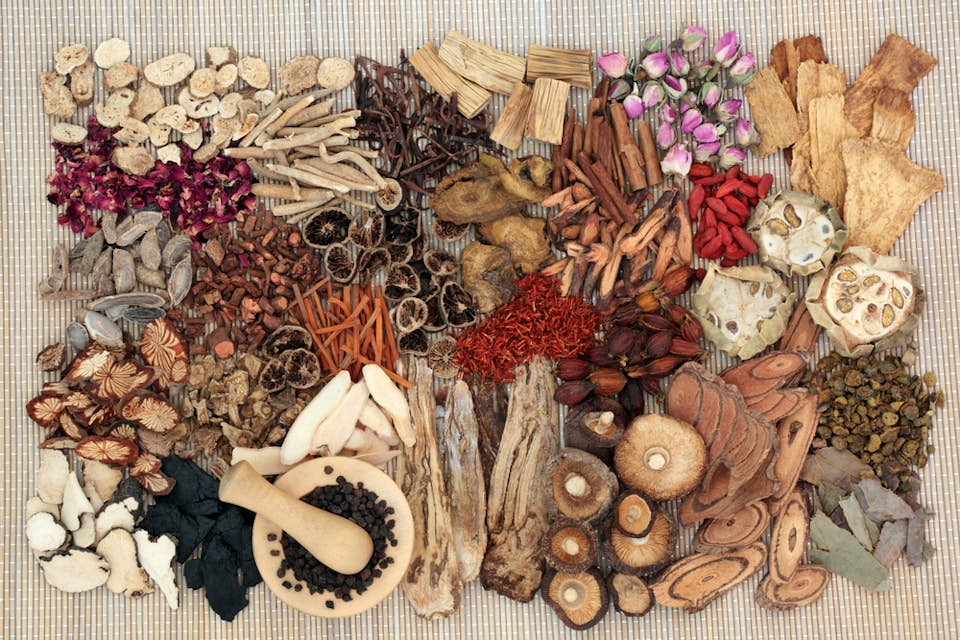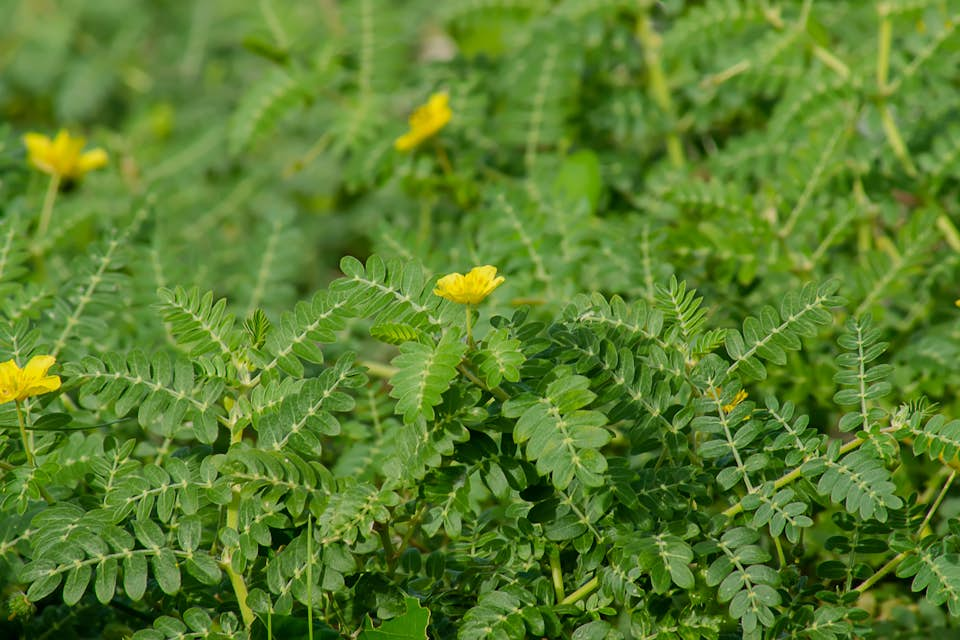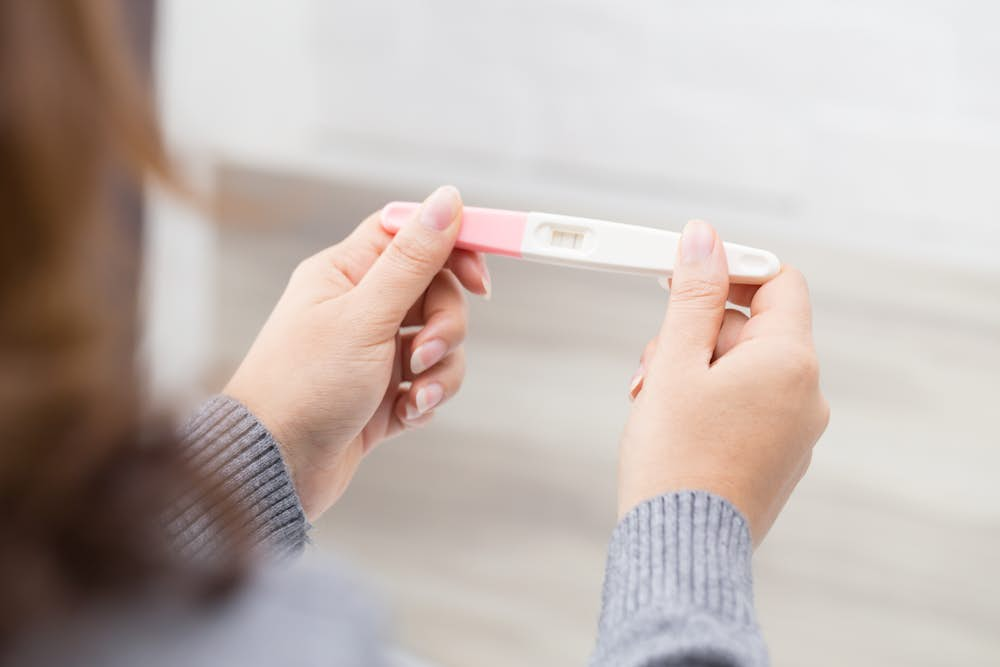The alarming rise of infertility in the West
According to the World Health Organization (WHO), 48 million couples suffer from infertility globally. Alarmingly, studies have shown that over the last 50 years, both female and male fertility has been decreasing in Western populations, with miscarriage rates increasing by 1% per year from 1990 to 2011 and sperm counts dropping by 52.4% between 1974 and 2011.[1,2] This leaves a growing number of couples in need of assistance with conception and pregnancy. Medical fertility care can be extremely costly and is rarely prioritized in universal health benefits packages, leading many couples to explore alternative methods to increase their chances of having a baby.
Phytotherapy and alternative medicine
Phytotherapy is derived from the Greek words phyton, which means plant, and therapeia, which means treatment. The term encompasses the use of plants to cure or prevent diseases.[3] Almost all ancient medical systems use phytotherapy in some form, from ayurvedic to traditional Chinese medicine. Even modern Western medicine finds its roots in phytotherapy, with many commonly prescribed drugs developed using substances derived from plants. Now called “soft” or “alternative” medicine, phytotherapy is experiencing a real boom in developed countries. According to a United States government survey, over a third of Americans use some form of complementary or alternative medicine to combat health issues, primarily due to disillusionment with the efficacy of Western medicine.[4] This equates to a yearly out-of-pocket cost of 33.9 billion USD on complementary or alternative medicine (CAM)treatments, a major proportion of which are phytotherapies.[5]

Traditional medicine plants used in phytotherapies.
The importance of diet in conception and fertility
The first rule of good health is healthy nutrition, to this fertility, conception, and pregnancy are no exception. In addition to a balanced diet, exposure to substances that could have deleterious effects on reproduction, fertility, and fetal development must be controlled or avoided. Such toxic substances could come in the form of endocrine disruptors, which alter the production of certain hormones that directly impact fertility. Endocrine disruptors, such as phthalates and parabens commonly used in cosmetics products, are somewhat ubiquitous in our modern world and quasi-impossible to avoid. However, there are phytotherapies that can help to detoxify the body and undo some of the toxic effects on fertility. Therefore, to optimize conception, it is necessary first to have a balanced diet, know how to detoxify the body to promote the embryo's conception and maturation, and finally, understand the benefits and risks of the permitted or contraindicated plants during this period of a woman’s life.
Phytotherapeutic treatments that stimulate female fertility
Several well-known phytotherapies have demonstrated effectiveness in stimulating female fertility by providing essential nutrients for conception and pregnancy, detoxifying the body, stimulating hormones required for reproduction, and boosting sexual libido.
The common nettle
Despite their prickly exterior, on the inside, stinging nettles harbor substances with long-established health benefits. Nettle tea is an herbal remedy for diseases such as diabetes, arthritis and many others. It is also building a growing reputation as a detoxification agent, helping prevent toxin build-up and eliminate existing toxins from the body, such as heavy metals and endocrine disruptors that could affect fertility.
Nettle, or Urtica dioica L., is rich in iron, magnesium, and calcium, it improves circulation, and its anti-inflammatory agents facilitate the development of a healthy endometrial wall.[6] This wall, which lines the inside of the uterus, thickens every month for possible implantation. Even after conception and pregnancy, the benefits of nettle continue when the baby is born because it also stimulates lactation.
Chaste tree
Despite its name, the chaste tree is a rich source of fertility-boosting substances. Indeed, some of the most potent infertility remedies usually contain chaste tree berries. Berries of the chaste tree, also known as Vitex agnus-castus, stimulate the pituitary gland to increase hormones that prepare the body for pregnancy. These berries increase progesterone concentration during the luteal phase and decrease prolactin levels, thus improving fertility.[7]
A placebo-controlled study of a fertility supplement containing chaste berries conducted by scientists at Stanford University tested this herb on 93 women who had unsuccessfully been trying to conceive for at least 36 months.[8]After three months, the fertility supplement group showed several improvements in their menstrual characteristics, notably significantly increased progesterone levels and a trend towards increased luteal phase length. Furthermore, 26% of the women in the fertility supplement group had conceived after three months, compared to only 10% in the placebo group.[8]
Tribulus Terrestris L.
Tribulus terrestris is a phytotherapy that has been used for thousands of years in the traditional medicine systems found in China, India, Sudan, and Pakistan. It has been purported as a potent aphrodisiac used to boost sexual libido and fertility in both men and women. In a study of women with low libido, Tribulus terrestris performed well against the placebo, significantly increasing desire, arousal, lubrication, and satisfaction in women taking the supplement.[9]Another study demonstrated the effect of Tribulus terrestris in the treatment of female sexual dysfunction and clitoral vascularity in a randomized trial comparing two different dosage regimens; the results show the beneficial action of Tribulus.[10]

Tribulus Terrestris L. is a phytotherapy that has been used for thousands of years in traditional medicine
Phytotherapies that stimulate male fertility
While this article series is primarily focused on female reproductive health, it takes two to make a baby. All too often, the pressure of conception and child-bearing falls heavily, if not completely, on the female counterpart, creating unjust anxiety, stress, and even blame when challenges are encountered. Historically, conversations about fertility issues have focused on the woman without due cause. In reality, problems with conception can just as easily come from the male partner. It is important to examine both sides and take any necessary steps to optimize the fertility of both the woman and the man. Fortunately, several plant extracts have been demonstrated to improve male fertility, and many more are currently under study.
Nettle seeds and roots
A familiar candidate from the discussion on female fertility is the common nettle. As a phytotherapy for male fertility, nettle seeds increase male potency and stimulate sperm development. These seeds are rich in vitamin E, which is vital for the production of sperm. In addition to using the seeds, nettle roots are also believed to have beneficial effects on fertility by regulating hormones.[11]
Tribulus Terrestris L.
Tribulus terrestris also makes a second appearance as a fertility phytotherapy for men. Studies have shown the robust effects of this herbal remedy in increasing testosterone levels and improving sexual function in men who had erectile dysfunction with partial androgenic deficiency.[12,13]
Phytotherapy: A valid complementary or alternative treatment
For several decades, medically assisted procreation techniques have been developed to help couples achieve conception. While these techniques have enabled millions of couples to have children, they are very costly and associated with relatively low success rates. We must not forget that human fertility depends on many factors: nutrition, sexual behavior, endocrinology, lifestyle, and exposure to pollutants, to name a few. Phytotherapies can be an affordable and easy way to balance hormone levels, detoxify the body, and increase libido, which can, in turn, improve a couple’s chances of conceiving, as well as preparing the body of the mother-to-be for pregnancy.
Bibliography
[1] Levine H, Jørgensen N, Martino-Andrade A, et al. Temporal trends in sperm count: A systematic review and meta-regression analysis. Human Reproduction Update. 2017;23(6):646–659. https://doi.org/10.1093/humupd/dmx022
[2] Rossen LM, Ahrens KA, Branum AM. Trends in Risk of Pregnancy Loss Among US Women, 1990–2011. Paediatric and Perinatal Epidemiology. 2017 ;32:19–29. https://doi.org/10.1111/ppe.12417
[3] Motte R. Intérêt et utilisation de la phytothérapie chez la femme enceinte, par le biais des forums Internet. 2018; Université Catholique de Lille, Faculté de Médecine et Maïeutique.
[4] Complementary and Alternative Medicine Use Among Adults: United States, 2002. Advance Data No. 343. pp. 20 (PHS) 2004–1250.
[5] Nahin, RL, Barnes PM, Stussman BJ, Bloom B. Costs of Complementary and Alternative Medicine (CAM) and Frequency of Visits to CAM Practitioners: United States, 2007. National health statistics reports; no 18. Hyattsville, MD: National Center for Health Statistics; 2009.
[6] Antoine E, Chirila S, Teodorescu C. A Patented Blend Consisting of a Combination of Vitex agnus-castus Extract, Lepidium meyenii (Maca) Extract and Active Folate, a Nutritional Supplement for Improving Fertility in Women Maedica (Bucur). 2019;14(3):274–279. doi: 10.26574/maedica.2019.14.3.274.
[7] Ilhan M, Ali Z, Khan IA, Taştan H, Küpeli Akkol E. Bioactivity-guided isolation of flavonoids from Urtica dioica L. and their effect on the endometriosis rat model. J Ethnopharmacol. 2019;243:112100. doi: 10.1016/j.jep.2019.112100. Epub 2019 Jul 17.
[8] Westphal LM, Polan ML, Trant AS. Double-blind, placebo-controlled study of Fertilityblend: A nutritional supplement for improving fertility in women. Clin Exp Obstet Gynecol. 2006;33(4):205–8. PMID: 17211965.
[9] Akhtari E, Raisi F, Keshavarz M, et al. Tribulus terrestris for treatment of sexual dysfunction in women: A randomized, double-blind placebo-controlled study. DARU J Pharm Sci 22. 2014;40. https://doi.org/10.1186/2008-2231-22-40.
[10] Bernardes Castro Vale F, Duelli Boroni J, Geber G, et al. Effect of Tribulus terrestris in the treatment of female sexual dysfunction and clitoral vascularization. Results of a randomized study comparing two different dosage regimes. J Sex Marital Ther. 2021;1–11. doi: 10.1080/0092623X.2021.1938764. Online ahead of print.
[11] Santos HO, Howell S, Teixeira FJ. Beyond tribulus (Tribulus terrestris L.): The effects of phytotherapics on testosterone, sperm and prostate parameters. J. Ethnopharmacol. 2019;235:392–405. doi : 10.1016/j.jep.2019.02.033. Epub 2019 Feb 18.
[12] El-Din FG, Salam MAA, Mohamed MS, et al. Tribulus terrestris versus placebo in the treatment of erectile dysfunction and lower urinary tract symptoms in patients with late-onset hypogonadism: A placebo-controlled study. Urologia. 2019;86(2):74–78. doi: 10.1177/0391560318802160. Epub 2018 Sep 25.
[13] Capece M, Romeo G, Ruffo G, et al. A phytotherapic approach to reduce sperm DNA fragmentation in patients with male infertility. Urologia. 2017;84(2):79–82. doi: 10.5301/uro.5000210. Epub 2016 Dec 28.

Professor Chantal Marion
Professor of Pharmaceutical Sciences
Chantal Marion holds a PhD in pharmaceutical sciences from the Department of Pharmacy at the University of Montpellier, specializing in natural medicines, phytotherapy and aromatherapy. She has been honored by the French government as an Officier in L'Ordre National des Palmes Academiques and as a Chevalier in L'Ordre National du Merite.
